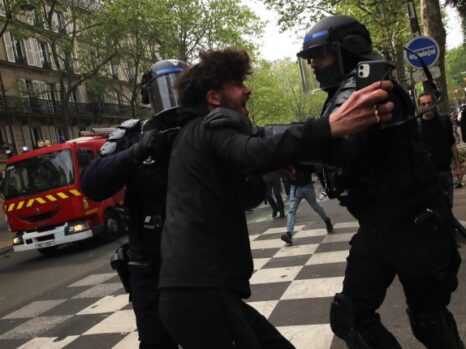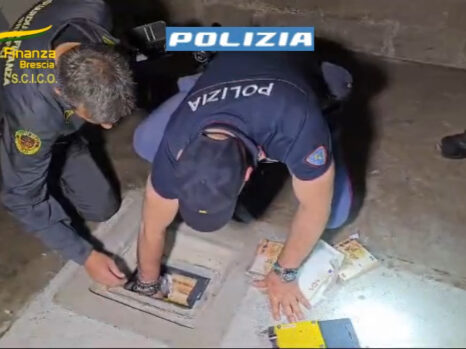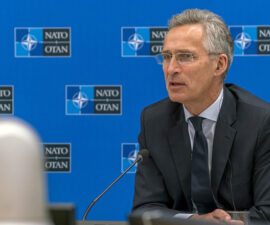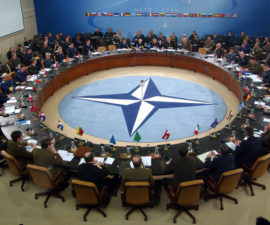VILNIUS. Nella giornata di oggi, in seguito alla conclusione del summit annuale dell’Alleanza Atlantica, il Segretario Generale Stoltenberg ha tenuto una conferenza stampa finale allo scopo di riassumere le principali decisioni prese durante il vertice e fare il punto sulle future prospettive dell’Alleanza.

Il Segretario Generale Jens Stoltenberg durante la conferenza stampa di oggi
Come di consueto, prima di rispondere alle domande egli ha rilasciato una breve dichiarazione, che riportiamo di seguito in lingua inglese:
“Good afternoon.
We have just concluded an historic NATO Summit.
Over the past two days, we took major decisions to adapt our Alliance for the future.
We agreed NATO’s most detailed and robust defence plans since the Cold War, we strengthened our commitment to defence investment, we agreed to bring Ukraine closer to the Alliance, and step up support for the long haul, and we deepened our partnerships around the world even more.
I have just chaired the inaugural meeting of the NATO-Ukraine Council. From now on, NATO and Ukraine will meet in the Council to discuss and decide as equals. This is a significant step to move Ukraine closer to NATO.
I also welcome the major new announcements of military support made by NATO Allies at this Summit. Allies have already provided tens of billions of dollars in military aid to help beat back Russia’s invasion, tens of thousands of Ukrainian troops have been trained and equipped by NATO Allies and, as Ukraine continues to liberate territory, we will stand by them. For as long as it takes.
Yesterday, Allies agreed a new multi-year assistance package for Ukraine to help transition Ukraine from Soviet-era to NATO equipment and standards, and make their forces fully interoperable with NATO. Ukraine is now closer to NATO than ever before.
Allies reaffirmed that Ukraine will become a member of NATO, and agreed to remove the requirement for a Membership Action Plan. This will change Ukraine’s membership path from a two-step process to a one-step process.
We will issue an invitation for Ukraine to join NATO when Allies agree that conditions are met. This sends a clear, strong and united message from our Vilnius Summit.
We must ensure that when this war ends, there are credible arrangements in place for Ukraine’s security, so that history does not repeat itself.
I welcome that many Allies have now committed to providing long-term security assistance to Ukraine. This will help deter any future aggression from Russia after this war ends.
This morning, we met with the leaders of Australia, Japan, New Zealand, and South Korea, as well as the European Union.
NATO is a regional Alliance, but we face global challenges.
What happens in Europe matters to the Indo-Pacific, and what happens in the Indo-Pacific matters to North America and Europe.
Beijing’s global assertiveness and Moscow’s war against Ukraine require even closer coordination between NATO, the EU and our Indo-Pacific partners.
We condemn North Korea’s nuclear and missile programmes, including its latest missile launch: These violate multiple UN Security Council Resolutions and pose a threat to regional and global security.
NATO is reinforcing our ties with Australia, Japan, New Zealand and South Korea with tailored partnership programmes, including joint work on issues like maritime security, new technologies, cyber, climate change, and resilience.
We will work even more closely together, standing strong for the rules-based international order.
We face the most serious security situation in decades, but Allies are rising to the challenge.
NATO is more united than ever, standing strong in defence of our people, and our values.
I would like to close by thanking President Nausėda, the Lithuanian government and the people of Vilnius for hosting this historic Summit.
I look forward to the Washington Summit next year, marking NATO’s 75th anniversary”.
© RIPRODUZIONE RISERVATA














